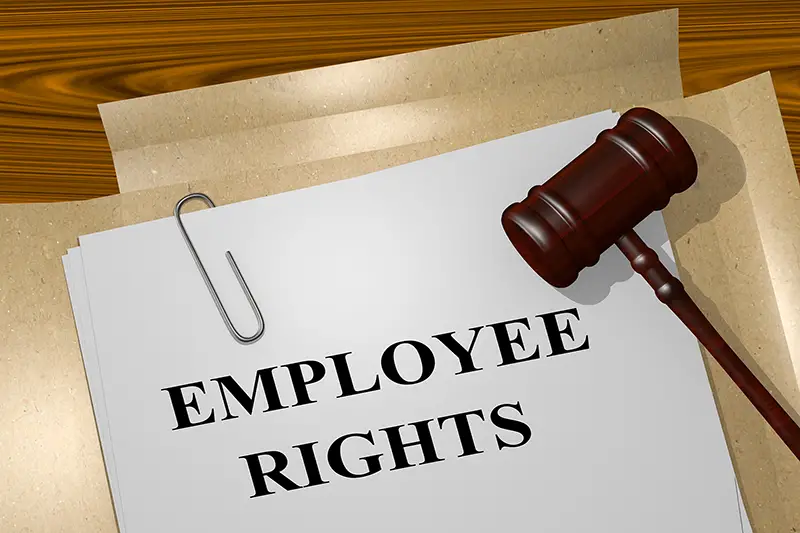Click here to get this post in PDF

Starting a new job can be an exciting — if sometimes nerve-wracking — time. You’ll meet new people, learn new skills, and hopefully embark on a new career that you love. But even if you’re only planning to keep a job for a short time, you deserve to know your rights in the workplace.
A strong advocate for workers’ rights is Mary Beth Maxwell, Secretary for Policy in the Department of Labor. She is one of many political leaders who strive to ensure workers are treated fairly, are able to unionize, and are paid fair wages for their labor.
When you begin a new job, here are the important things you should know about your rights.
Equal Opportunities, Equal Pay
The U.S. Equal Employment Opportunity Commission sets out standards that workplaces must adhere to when operating in the United States. Its list of employee rights includes the right for individuals to be paid equally and considered equally for job positions, regardless of gender, race, religion, and other protected classes.
Harassment-Free Workplace
Most reputable companies will already have an anti-harassment policy in their code of conduct, but you are also protected by federal law. You have a right to work without being harassed, discriminated against, or exploited for any reason — including your gender presentation, sexual orientation, age, country of origin, ethnicity, and disability. This includes harassment from coworkers, supervisors, or contracted vendors who work with the company. If you are being harassed, you have the right to file a complaint.
Reasonable Accommodations
If you are disabled, under the Americans with Disability Act, your right to be treated equally to your non-disabled coworkers, and receive reasonable accommodations to allow you to do your job. Some laws allow for religious accommodations, such as breaks for prayer. What is considered reasonable accommodations can vary from employer to employer, and will reflect the job requirements? Speak to your HR person if you have questions. It can be scary to ask for accommodations when you’re new to a job. Still, you are protected from retaliation or harassment and have the right to request accommodations for your disability or religious observations.
Privacy and Confidantiality
Any medical or otherwise confidential information you share with your employer as part of your employment record cannot be shared with outside parties — including other coworkers — without your consent. In most cases, your employer is not entitled to access your medical files, and if this is part of the job requests, you must give informed consent. Know your rights. If your employer breaches your privacy or discloses your medical information without your consent or knowledge, they have broken the law.
Workplace Safety
You have a right to work in a safe environment. This includes your health and safety on the job. Employers are responsible for keeping the workplace free of any known hazards or safety issues, and you have a right to report any safety violations without fear of retaliation. In addition, OSHA states that you are entitled to safety and workplace health training so you are prepared for the job.
Wherever you work, make sure you know your rights. Your health and safety are important, and you deserve a workplace free of harm.
You may also like: Employment Law Issues: A Quick Guide!
Image source: Shutterstock.com
